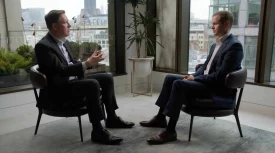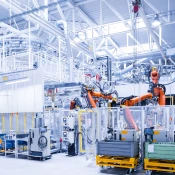Our Industrial Goods Sector Services
BCG's agribusiness consulting experts help agribusiness industry players reimagine strategy, adopt new technologies, and navigate large-scale change.
BCG's chemical industry consultants provide strategies to boost innovation, efficiency, and customer satisfaction for lasting market success.
BCG has the knowledge, global reach, and tools to help with changing practices and products for the forest product, paper, and packaging industries.
Machinery and industrial automation manufacturers can grow and thrive using winning strategies that emphasize resiliency, digitization, and sustainability.
The metals and mining industry faces unprecedented volatility. BCG's consulting experts help their clients excel amid a fast-changing landscape.
The building materials industry is adopting new ways of working. BCG has the experience, experts, and global presence to help companies succeed.
Related services
How BCG Helps Industrial Goods Companies
We help clients:
- Become more resilient. To thrive in uncertain times, companies must mitigate future shocks to their revenue and supply chain to maintain operations and respond to shifts in demand.
- Support digital transformation. When companies undertake a digital transformation, they’re well on their way to building for the future: combining technology with the flexibility, adaptability, and comprehensive experience of humans.
- Transform end-to-end costs. Companies must continuously improve their operations and manage costs to compensate for drops in revenue, preserve cash, and weather fluctuations in the economy and the business.
- Embrace sustainability. Companies committed to such imperatives as CO2 emission reduction and decarbonized operations today will set themselves up for success in the future.
Our Clients' Success in Industrial Goods

Client Impact
BCG is helping American Forest Foundation scale up a nature-based carbon credit program and deliver 1 billion tons of climate impact by 2050.

Discover how RHI Magnesita, in collaboration with BCG, is revolutionizing its global production network, unlocking unparalleled efficiency, cost savings, and operational breakthroughs.
Video
December 10, 2024
Scheduling the World’s Largest Fully-Owned and Integrated Iron Ore Supply Chain
Rio Tinto's world class iron ore operations−spanning 17 mines, more than 1,200 miles of rail, and 4 port terminals−have undergone a transformative AI-driven upgrade. Working in partnership with BCG X, this transformation enables stronger decision making while unlocking significant value.

De Beers CEO Al Cook shares how the company leverages data and innovative marketing techniques to meet demand for natural diamonds across generations and global markets.
The Future of Process Industries
Explore our collection of insights and learn how to navigate the six key trends that are reshaping the future of basic and industrial materials.

The Mahindra Group has seen its market capitalization increase twelvefold in just five years. In this episode of Moments of Truth, CEO Anish Shah explains how he has chosen to think big and lead with purpose.
Video
October 1, 2025
Sumit Gupta and NetZero’s Axel Reinaud explore how biochar can drive carbon removal at scale, improve agricultural yields, and create sustainable growth for communities worldwide.
Explore More
Industry
Machinery and Industrial Automation
Capability











